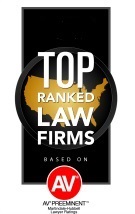Strength Matters: The Important Role Trademarks Play in Promoting Your Business
By The IP & Tech Law Watch Team
What makes a good trademark?
Strength & distinctiveness.
1. Fanciful or Coined Marks: An invented term that has no meaning, other than as a trademark, is the strongest mark. Think of XEROX for copiers or KODAK for cameras; neither has any dictionary meaning. Consumers will notice and remember fanciful or coined marks, which are afforded the broadest scope of trademark protection.
2. Arbitrary Marks: A term with a dictionary definition, but the definition is unrelated to the product or service, is an arbitrary mark. APPLE for computers, V-8 for juice, and IVORY for soap are famous, arbitrary trademarks. Like fanciful or coined marks, arbitrary marks are afforded a broad scope of trademark protection.
3. Suggestive Marks: A mark that conveys some attribute or benefit of the goods or services, but stops short of immediately describing their nature, is suggestive. Suggestive marks are the middle ground between arbitrary and descriptive marks, and require imagination by the consumer regarding the nature of the goods and services. ORACLE for computer software and VOLKSWAGEN for automobiles suggest, but do not describe, the characteristics of the products. Suggestive marks are inherently distinctive and protectable, but are not as strong as fanciful or arbitrary marks.
4. Merely Descriptive Marks: A mark that immediately conveys to the consumer knowledge of the ingredients, qualities, or characteristics of the goods or services, is descriptive. When a person shopping for a vacation location sees advertisements for theme parks entitled EGYPT and FISHERMAN’S WHARF, these terms directly describe and tell the shopper that the venues feature, respectively, an ancient Egypt theme and a San Francisco theme. Trademark protection for descriptive marks is extended only after consumers recognize such marks as identifying only one seller or source, and are the weakest form of trademark.
5. Generic Terms: A generic term is a word or phrase that is the common commercial name of a particular category of goods or services. AUDIO BOOK CLUB for audio book services, and E-TICKET for electronic airline ticketing services, are generic. A generic term is not protectable or enforceable as a trademark, and does not function as an indicator of source or origin.
Consult an attorney experienced in trademark law
Conduct a trademark and domain name clearance search
Choose a strong trademark
Register your trademark with the U.S. Patent & Trademark Office


